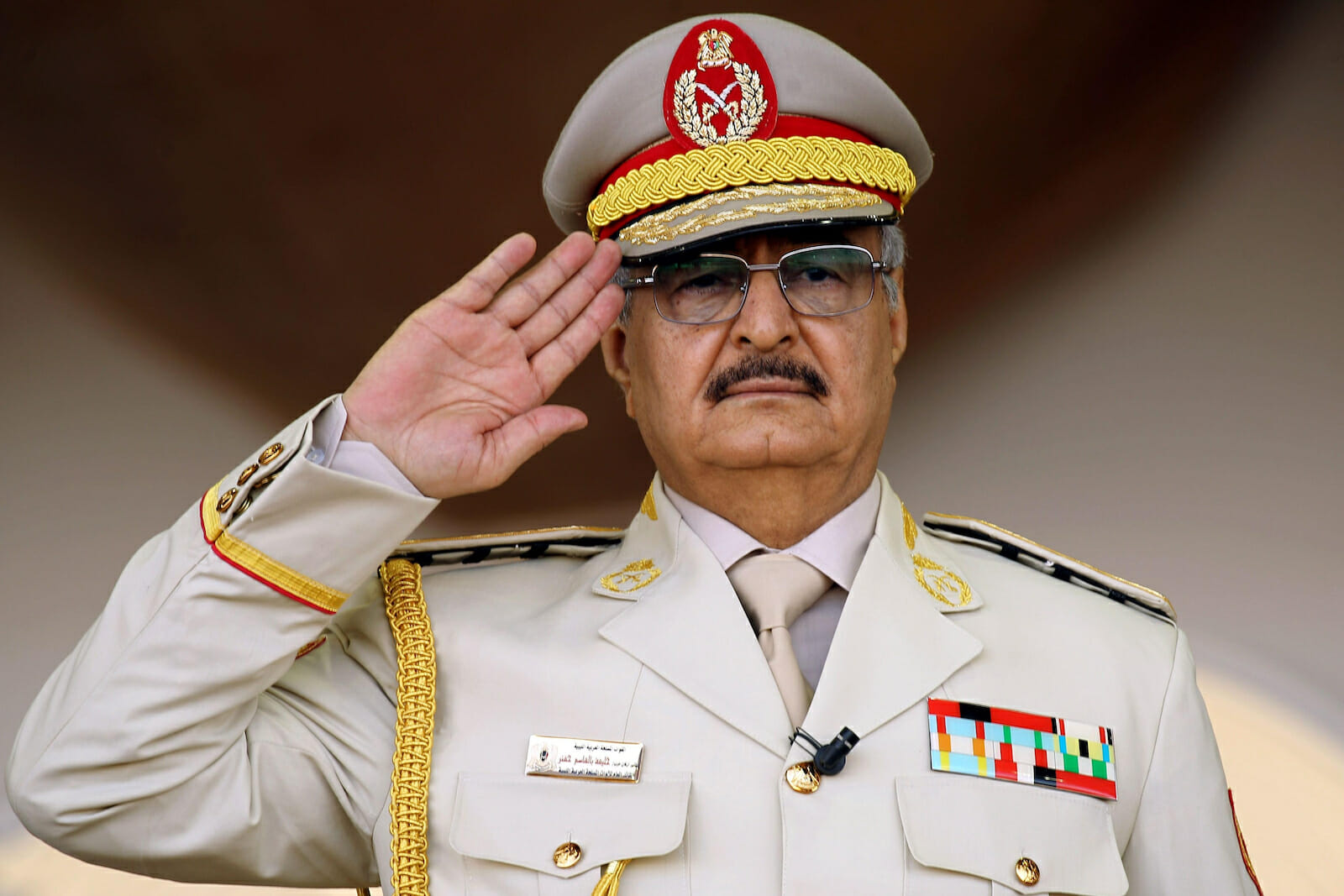
Russia and Turkey in Libya, Testing the Waters?
Growing wary of Soviet expansionism in a bipolar world, Turkey fostered an alliance with the U.S. in the aftermath of the Second World War. The geographical proximity to the Soviet Union made Turkey an important U.S. ally to check on Soviet Union’s aggrandizement. Now, times have changed. Russia is growing closer to Turkey in an effort to spearhead an independent foreign policy in the wake of its fraying relations with the U.S.
The warming ties between Moscow and Ankara are evident by Turkey’s purchase of a Russian S-400 anti-aircraft weapon system, their rampant engagement during the Syrian crisis, and recently with the opening of the TurkStream gas pipeline which will transport 31.5 billion cubic meters of gas through Turkey to Europe. Since 2019, Russia’s Vladimir Putin and Turkey’s Recep Tayyip Erdogan have met more than six times, indicating the urgency of their bonhomie. Russia has thus managed to woo this NATO ally, eliciting much discomfort in Europe and in the United States. But this marriage of convenience, bordering on mutual sycophancy, will face a litmus test in the Libyan-Syrian landscape, particularly testing the resolve of their divergent geopolitical ambitions.
The Berlin Conference on Libya, attended by the 5 permanent members of the UNSC, the Arab League, the African Union, Turkey, Algeria, and Congo, signed a unified deal to bring an end to foreign intervention in Libya, uphold the often-violated UN embargo on the oil-rich country, and coax the warring factions towards a ceasefire. Since Qaddafi’s ouster in 2011, foreign meddlers through their local proxies have turned the country into a breeding ground for their regional ambitions. Turkey has been throwing its weight behind the embattled Government of National Accord led by Fayez al-Sarraj sending military advisors, drones, and armored vehicles. The UN-backed government headed by Sarraj has been resisting a month-long offensive on Tripoli by Field Marshal Khalifa Haftar who is supported by Russian private military contractors. Russia denies its outright support to Haftar while maintaining relations with the UN-recognized government of Tripoli.
A few days earlier, Russia and Turkey tried to broker a ceasefire between the leaders of warring factions. No breakthrough was made as Haftar left Moscow without signing the agreement. The breakdown in talks showed Haftar’s disregard for Russia and Putin’s reluctance to reciprocate by pressurizing Haftar towards a ceasefire. Both conferences failed to forge peace on the ground. As the conference ended, fighting resumed on the ground. Haftar’s Libyan National Forces blocked the main oil export terminal strangling Libya’s oil-dependent economy, attacked Tripoli’s Mitiga International Airport, captured the strategic coastal town of Sirte and opened a new front to capture Misrata which is allied with GNA.
Turkey is likely to capitalize on the unrelenting escalation by Haftar’s LNA to legitimize its deployment of Turkish troops and 2,000 Syrian rebel fighters to shore up the UN-recognized GNA, in a move much maligned by Europe. It formalized its military alliance with GNA in exchange for a maritime agreement to manifest its ambitious energy policy. The signed agreement demarcates the countries’ maritime boundaries, creating a sea corridor between eastern Turkey and western Libya which transcends the exclusive economic zone of Greece and Cyprus. This line also deters the plans of Israel, Greece, and Cyprus to build an eastern Mediterranean pipeline that will ship gas to southern Europe. Turkey has been flexing its muscles by sending warships to support its drilling activities in the territorial waters of Greece and Cyprus.
With its growing appetite for energy resources, Turkey’s assertiveness in contested waters of eastern Mediterranean stems from its paranoia to be boxed in by rival maritime neighbors of Israel, Greece, Cyprus, and Egypt who fine-tune their strategic cohesiveness in diplomatic, military and energy initiatives leading to its further isolation. This can foment an energy showdown, turning the region into a major flashpoint. Turkey’s bold military adventure in Libya has seen its adversaries Egypt, Saudi Arabia, and UAE propping up its military support for Haftar due to its aversion of Islamist proponents within the GNA. GNA’S ideological affiliation with Muslim Brothered is also a common thread that ties it with Qatar and Turkey. Thus two opposing blocs can turn Libya into a battleground roiling more chaos.
Unlike Turkey, Russia’s approach is characterized by unabashed diplomatic flexibility and deliberate strategy of ambiguity. It has preferred working behind the scenes by letting UAE pay for the Haftar-allied Russian Wagner mercenaries thus garbling its political and financial commitment in the war. Russia has also provided diplomatic support by blocking UNSC resolutions condemning Haftar’s assault on Tripoli. It has avoided burning bridges with GNA to keep its options open and broker any settlement for Libya’s future. Russia would want to maintain relations with any party in power which guarantees access to Libya’s oil supplies, extensive energy resources and provides access to Libya’s strategic naval bases logistical support to keep a check on southern Europe and outmaneuver the west.
With Turkish actions widely denounced, it has turned to Russia for help in Libya. Haftar’s and Assad’s victories reflect Putin’s unwillingness to reassess its ties with both the parties, despite Erdogan’s countless pleas. For now, Russia is following an identical maneuvering posture in Idlib and Libya. Russia favors a status quo in Idlib where it allows the regime to recapture cities and villages that sit on the strategic M4 and M5 highway but staves of a full-blown assault on Idlib which will create serious refugee implications for Turkey; this acts as leverage for negotiating with Turkey. Thus indirectly the independence of the last rebel stronghold makes Assad dependent on Russian air supremacy in the absence of the on-ground support of the Iranian aligned Shia militias.
In Libya, Russia hopes for a low scale confrontation. As Germany failed to alleviate tensions in Libya, Russia will assume the role of a power broker while the need for a political settlement of the Idlib crisis dangles over its head like an albatross. As the European Union grows wary of Turkey’s expansionist policies in Libya and the wider Mediterranean, Russia can help strike a middle ground between Turkey and Europe to ease co-operation on settling the Libyan conflict. Finally, Russia and Europe will have a different agenda to talk about keeping hot topics of Russia’s annexation of Crimea and its conflict with Ukraine distant for a while. Thus for Russia, Libya and Syria are part of the same gambit. In the course of dynamic geopolitical games, Russia will have an upper hand over Turkey in both Syria and Libya due to Russia’s diplomatic flexibility.
But with Russia playing the uncanny game it faces a flurry of challenges. As Assad’s scores battlefield victories his inclination to follow Moscow’s lead in Libya withers further. It faces increasing competition from Teheran due to its deep entrenchment in Syria. In northeastern Syria, the residual U.S. military presence and abortive reconciliation deals between Assad and the Kurds are major roadblocks. Further by acting against Turkey’s interests in Syria and Libya, Russia will be hostage to its own strategic choices and might fail to convert short term gains into sustainable victories. The grandeur geopolitical ambitions of Russia and Turkey and the diverging approaches to pursue them put them at cross purposes. Thus changing dynamics in Libyan and the Syrian theatre will just test the waters of this relationship

